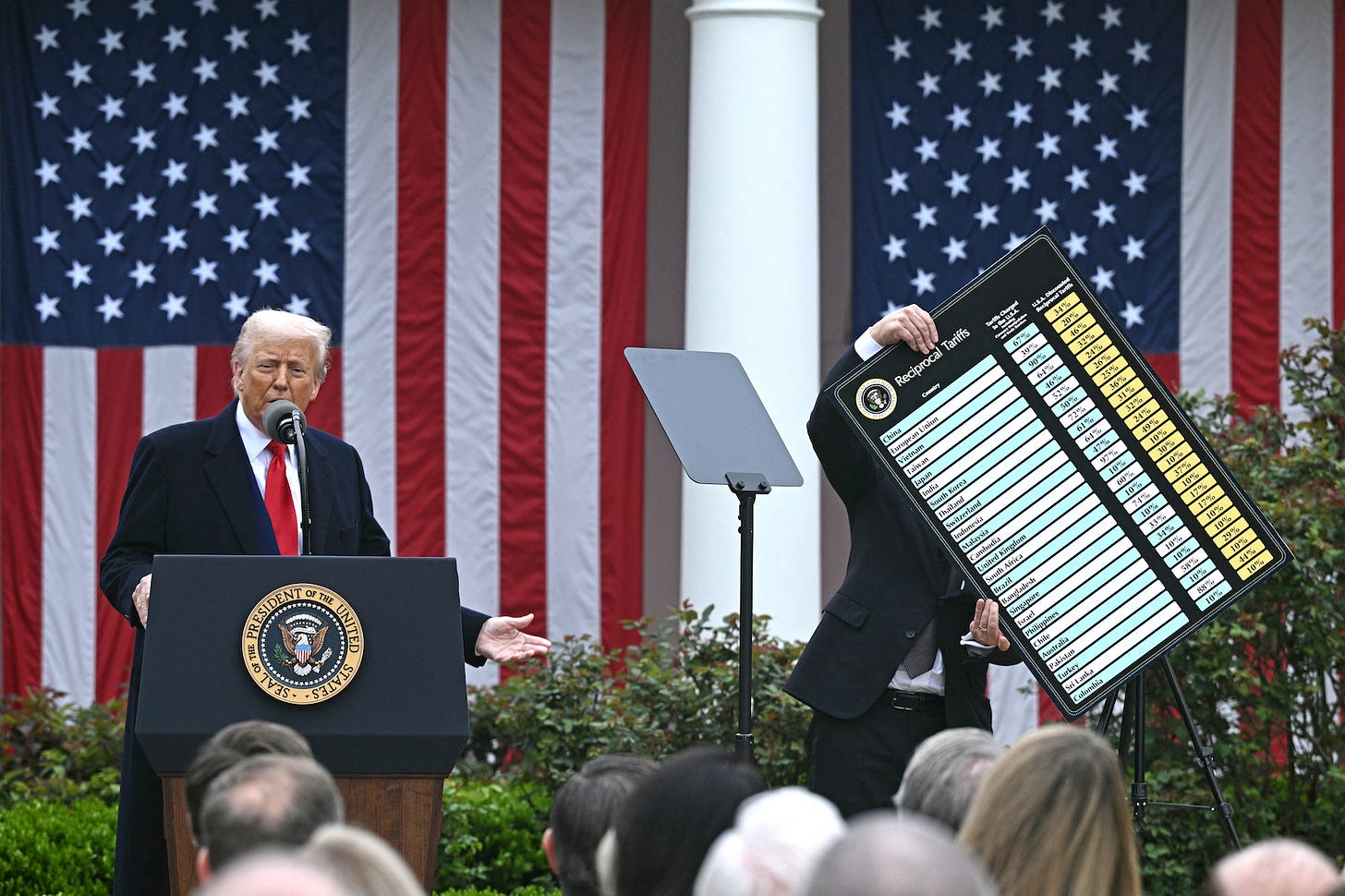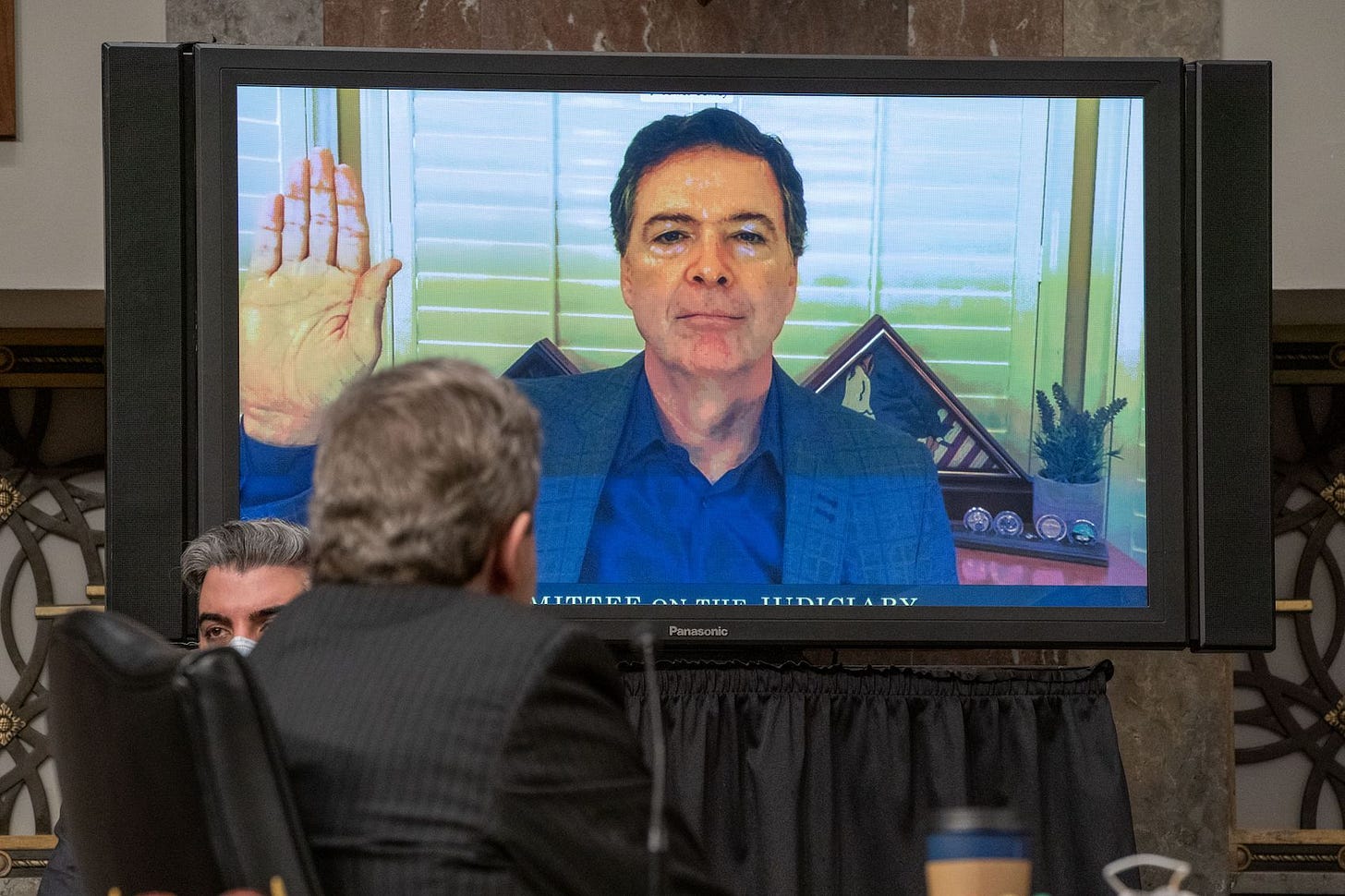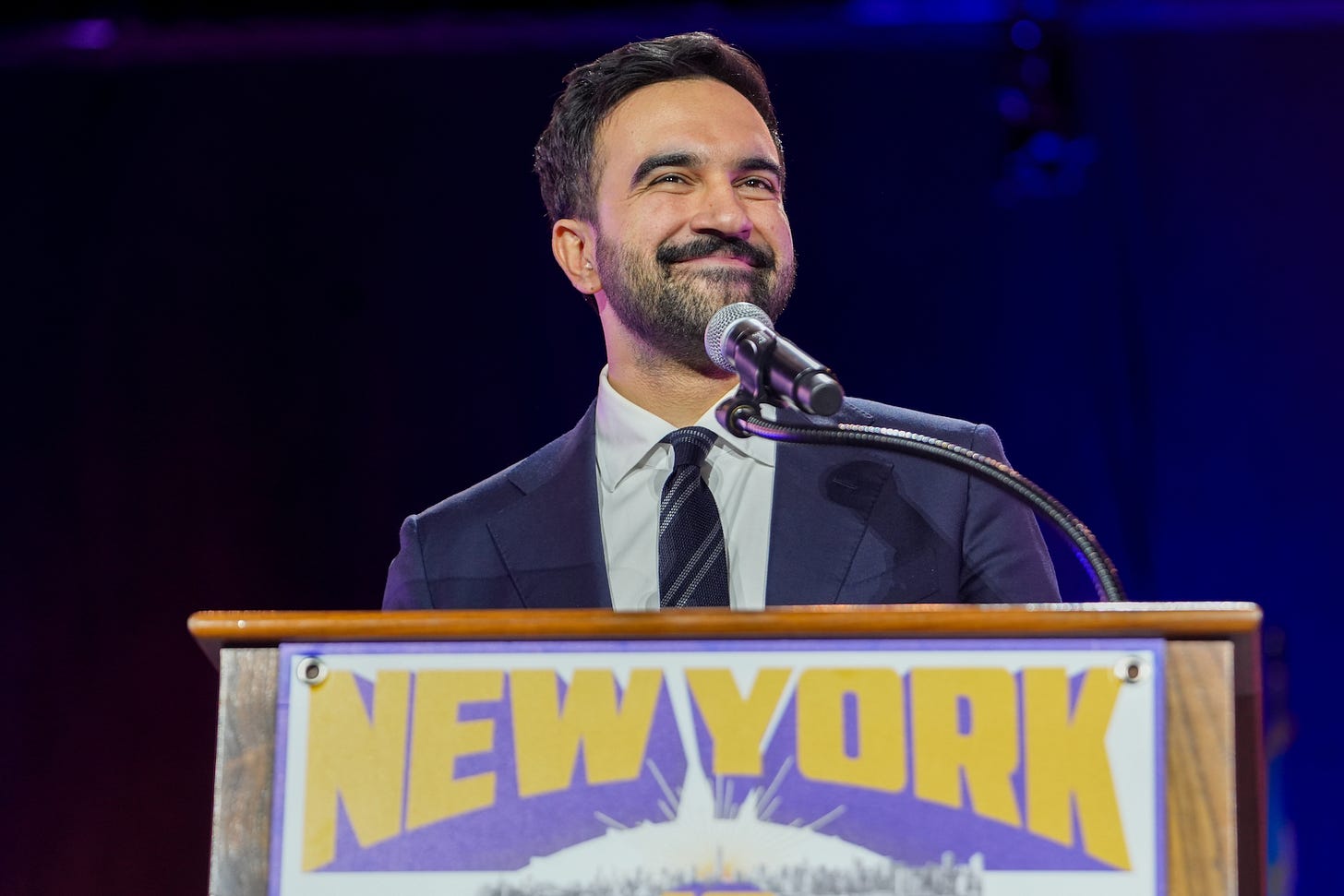Tonight in Your Rights: "Tariffs are taxes"
Neil Gorsuch reminds Trump about a "spark of the American revolution." James Comey's prosecutors reap a judge's fury. Plus, a postscript on Tuesday's election.
“Not the odds, but the stakes.”
This newsletter puts a scholar’s credo for Trump-era journalism into practice.
For nearly three hours of marathon oral arguments, Supreme Court justices and attorneys for the challengers of Donald Trump’s tariffs kept returning to a single refrain.
“You say tariffs are not taxes, but that’s exactly what they are,” Justice Sonia Sotomayor told Trump’s former personal attorney turned solicitor general John Sauer toward the start of oral arguments.
Attorney Neal Katyal, representing small businesses challenging Trump’s tariffs, began his arguments on the same note by declaring, “May it please the court: Tariffs are taxes.”
Perhaps the most pointed explanation for why the U.S. Constitution gives Congress the sole authority to impose tariffs came from Trump-appointed Supreme Court Justice Neil Gorsuch.
Paraphrasing James Madison, Gorsuch noted that the “power to reach into the pockets of the American People is just different, and it has been different since the founding.” He added that the duties imposed on colonial trade through the Navigation Acts “were part of the spark of the American revolution.”
Two lower courts have found Trump’s so-called “Liberation Day” tariffs illegal, rejecting the notion that Congress gave presidents the power to impose them under the International Emergency Economic Powers Act of 1977. Trump is the first U.S. president to try to use the law to impose import taxes, which were quickly challenged by coalitions of affected small businesses and blue states.
From Wednesday’s oral arguments, the Supreme Court does not seem like it will be any more receptive, and the final ruling may not be close. Chief Justice John Roberts, Justice Amy Coney Barrett and Gorsuch all expressed deep skepticism about Trump’s power to unilaterally impose tariffs.
Throughout his tenure as chief justice, Roberts has pushed the so-called major questions doctrine of statutory analysis, holding that Congress must give clear authorization for the executive to exert authority of “vast economic and political significance.” The statute that Trump relies on doesn’t contain the words “tariff,” “tax,” or “duty.”
Barrett noted that no other president in the history of the statute interpreted “regulate importation” in the way that the government does.
Focusing on the sweeping power grab at the heart of the government’s position, Gorsuch noted that the same logic could result in Congress “abdicating all responsibility to regulate foreign commerce — for that matter, declare war — to the President.”
“We don’t contend that he could do that,” Sauer said.
“Why not?” Gorsuch sharply replied.
After a brief exchange, Gorsuch warned that this view of the president’s “inherent authority” could result in Congress saying: “We’re tired of this legislating business. We’re just going to hand this all to the president. What stops them from doing it?”
Once Congress cedes that power, Gorsuch observed that no president would voluntarily concede the expansion of executive power, and so it would take a veto-proof supermajority for the legislature to reclaim its constitutional power.
“As a practical matter, Congress can’t get the power back, one-way ratcheting towards the gradual accretion of power in the executive branch and away from the elected representatives,” he said.
Katyal borrowed Gorsuch’s phrase “one-way ratchet” in his arguments, arguing that the Trump appointee “nailed it on the head.”
The small businesses who brought this litigation — led by wine importer V.O.S. Selections and educational toy-maker Learning Resources — proved to the lower courts that Trump’s tariffs have led to “massive disruptions in [their] supply chain, business relations, and business operations.” The Trump administration vowed to refund that money if they lose, but Barrett questioned how that would work in practice.
“If you win, tell me how the reimbursement process would work. Would it be a complete mess?” she asked Katyal, who is an MSNBC legal analyst and former Acting Solicitor General under Barack Obama.
Katyal didn’t dispute that it would be, but that would be no reason to avoid finding them unlawful.
Practicalities aside, Wednesday’s oral arguments focused primarily on the unprecedented assertion of executive authority to impose global tariffs since the passage of the nearly 50-year-old statute.
Shoftly after the hearing, I joined Michael Popok and California Attorney General Rob Bonta for a wide-ranging conversation about the proceedings. Look out for it to air tomorrow on Legal AF.
“Indict first, investigate second”
At the same time that Trump’s former lawyer had a hot bench from the Supreme Court, ex-FBI director James Comey’s prosecutors reportedly received a dressing down some 12 miles away inside a federal court in Alexandria, Va.
According to Politico, U.S. Magistrate Judge William Fitzpatrick said that Comey’s prosecutors adopted a posture of “indict first, investigate second” before demanding the disclosure of all grand jury information related to the case. Fitzpatrick reportedly called the case against Comey “highly unusual.”
Fitzpatrick marks the second judge to demand the speedy disclosure of the grand jury transcripts memorializing Trump’s former lawyer turned first-time prosecutor Lindsey Halligan’s comments before Comey’s indictment. The other, U.S. District Judge Cameron Currie, is hearing a joint motion by Comey and New York Attorney General Letitia James to disqualify Halligan as unlawfully appointed.
On Tuesday, Judge Currie issued an order finding that the government failed to provide the full grand jury transcripts or recordings. She ordered Halligan’s team to provide all materials today by 5 p.m.
All Rise News plans to cover Halligan’s disqualification hearing live in Alexandria on Nov. 13.
‘The conditions that allowed him to accumulate power’
The Democratic Party ran the board during Tuesday’s elections, racking up victories in gubernatorial, judicial, local and other elections in New York, New Jersey, Virginia, Georgia, Pennsylvania and California.
Zohran Mamdani became New York City’s first Muslim and South Asian Mayor-elect.
Gov.-elect Mikie Sherrill far exceeded expectations in New Jersey, and voters in every county of Virginia shifted to the left to carry Abigail Spanberger to a convincing victory in Virginia. Spanberger’s soon-to-be deputy Ghazala Hashmi will be the first Muslim woman elected to statewide office in U.S. history.
Democrats preserved their 5-2 majority on the Pennsylvania Supreme Court, where Trump often tries to bring litigation to restrict voting access and sought to subvert his defeat in 2020. The party also flipped two of the five seats on a Georgia commission that hasn’t seen blue representation since 2007.
After Trump’s rough day in court on tariffs, The New York Times ran a story with the headline: “Elections Show Trump’s Edge on the Economy Slipping.” The premise of the news story is hard to dispute, but Trump’s economic policies can’t be disentangled from his authoritarian power grabs.
Trump’s tariffs, usurping the Article I constitutional order, prove that.
Mamdani, who ran his campaign with a laser focus on the economy, recognized the intersection of the two issues in his victory speech.
“After all, if anyone can show a nation betrayed by Donald Trump how to defeat him, it is the city that gave rise to him,” Mamdani said. “And if there is any way to terrify a despot, it is by dismantling the very conditions that allowed him to accumulate power.”






Yes, it was a great day for Democrats but importantly, WHAT A GREAT DAY FOR WOMEN AND MUSLIMS!!! It goes to show, when candidates address the relevant issues in a region, voters don't so much care what they look like.
Thank you Adam for doing a truly great job covering these cases.